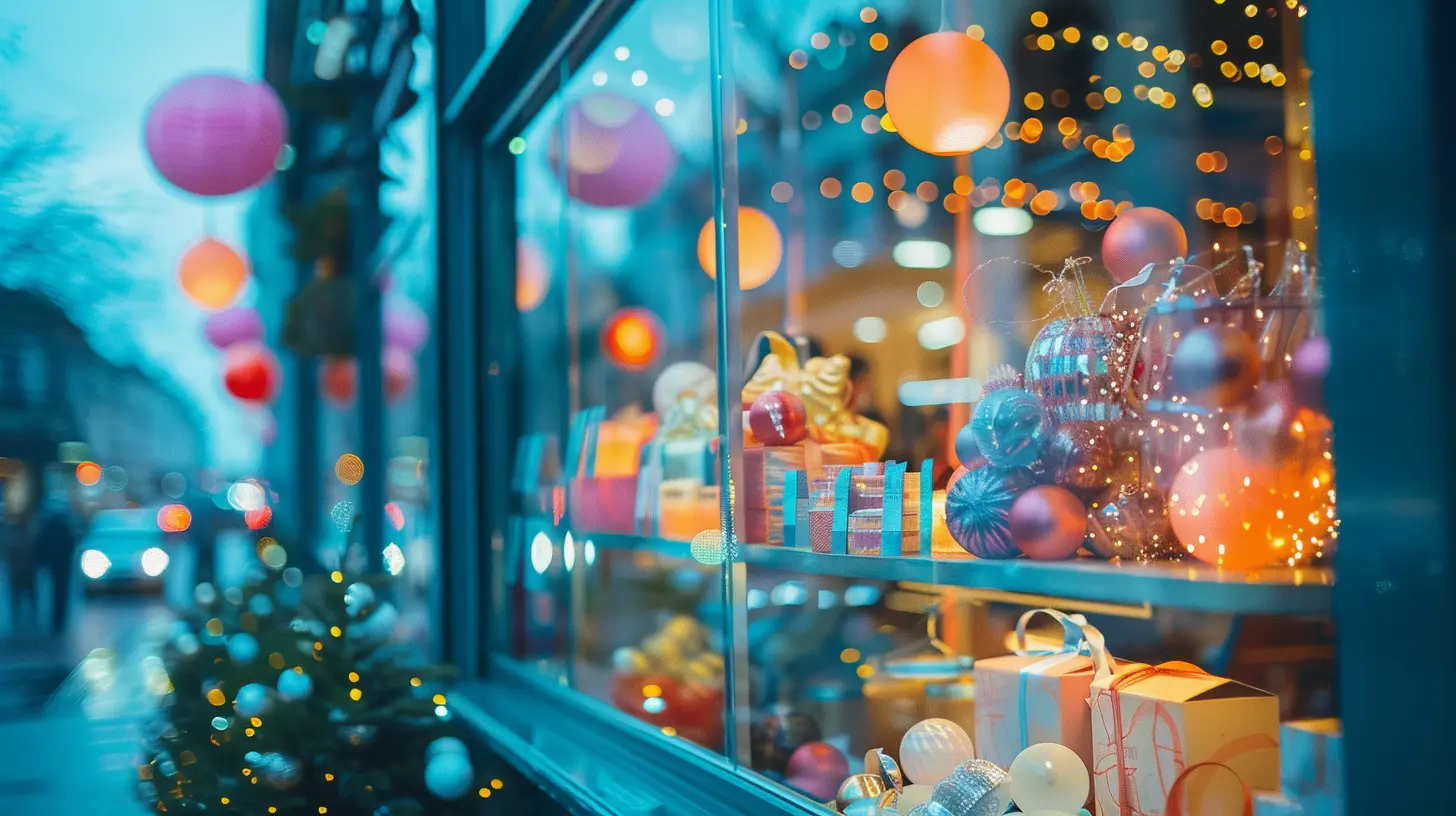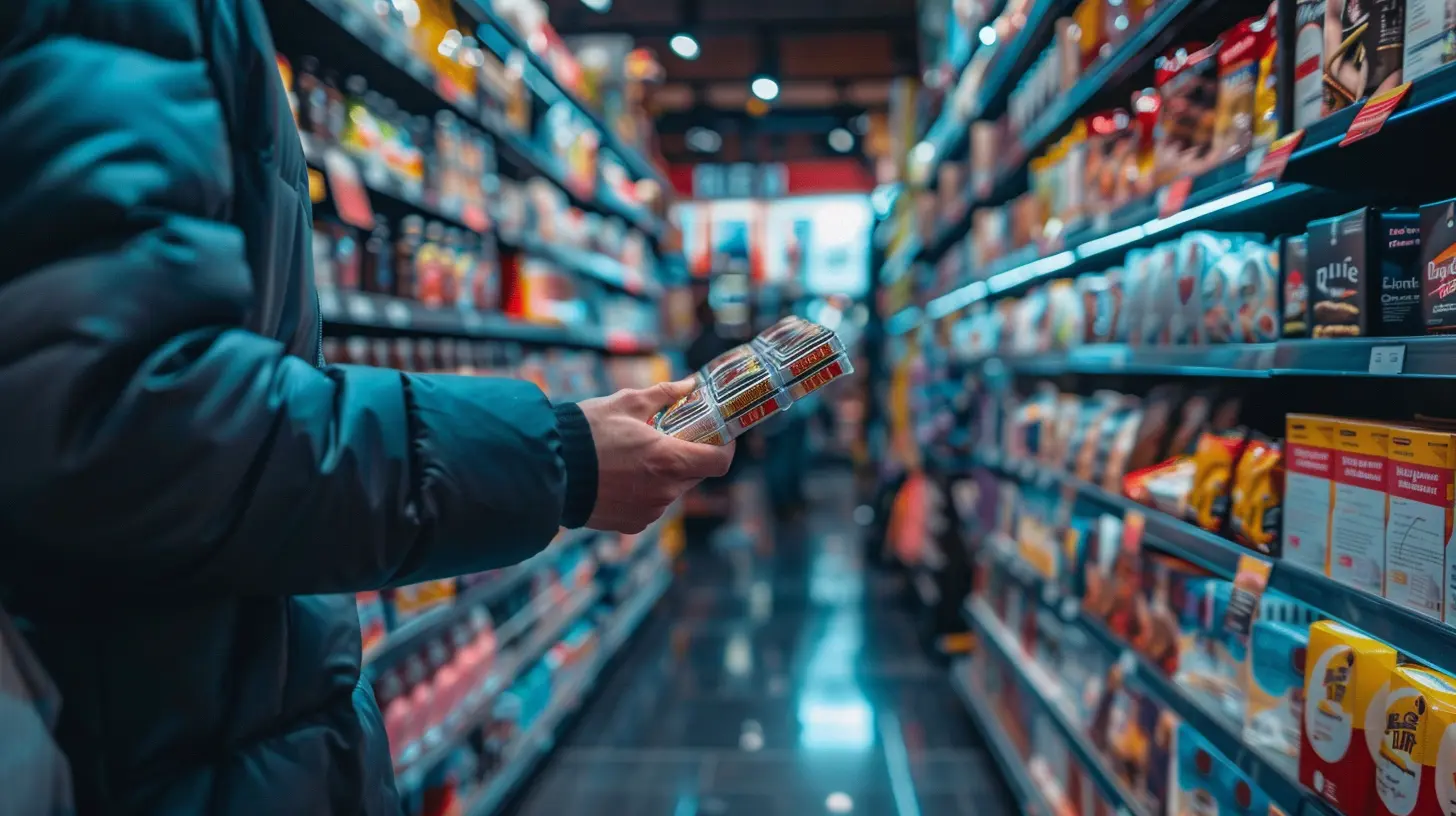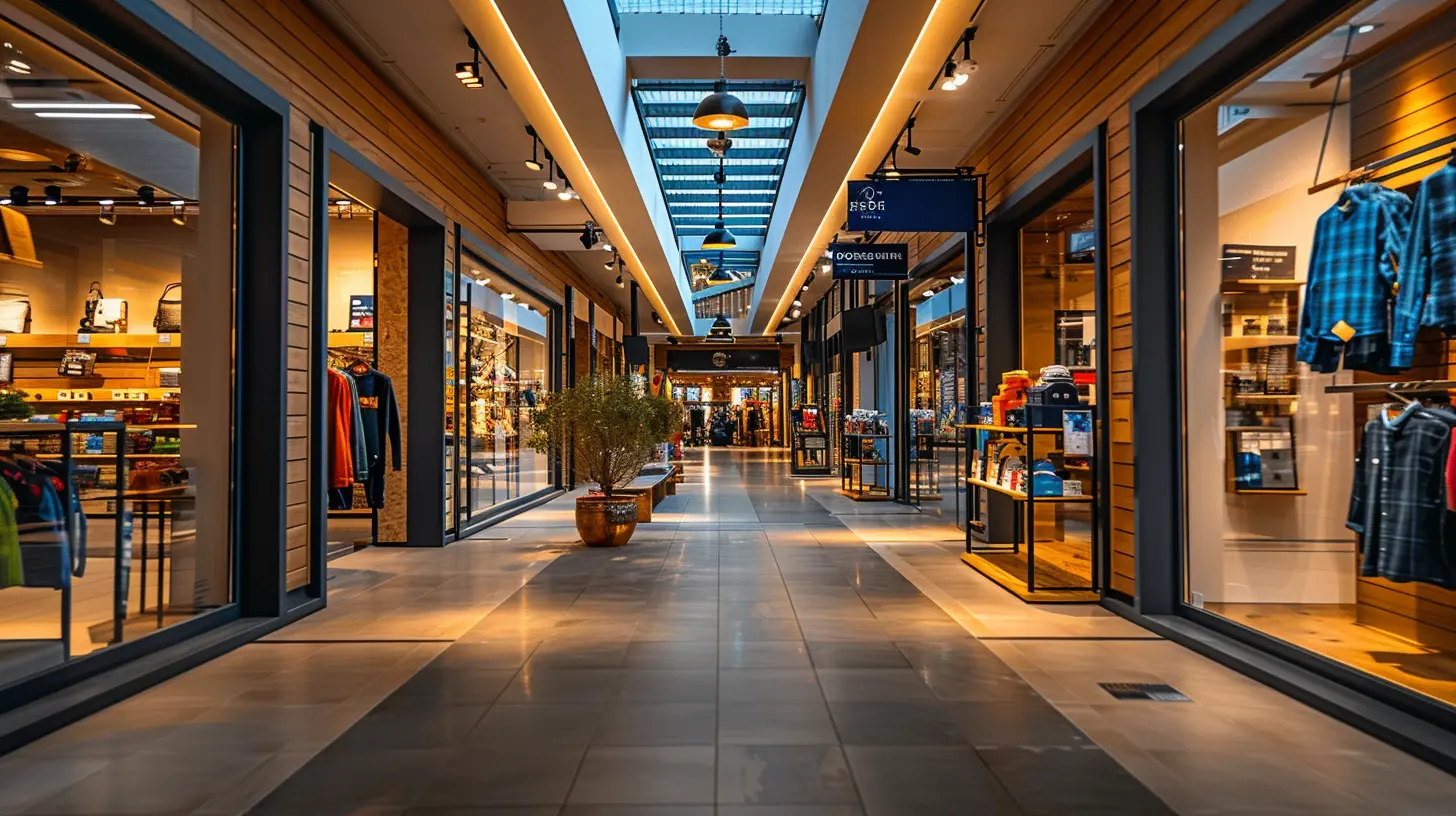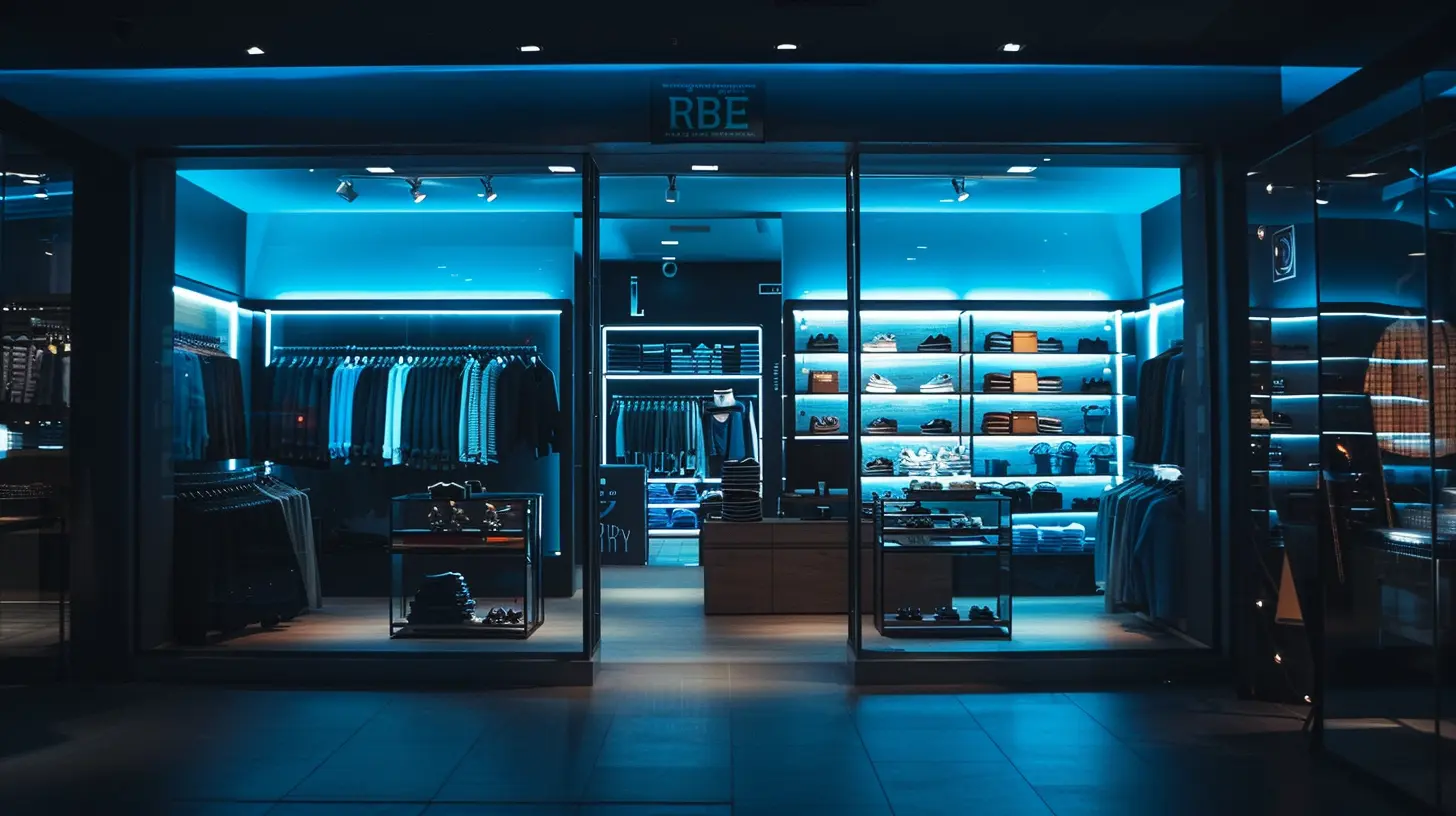Visual Storytelling: How to Engage Retail Shoppers with Your Displays
9 October 2025
Let’s face it—we’re living in the age of scrolls, swipes, and split-second decisions. In such a fast-paced, visually-driven world, traditional retail can feel like it’s struggling to keep up. But here's the thing: brick-and-mortar isn't dead. It just needs to do what digital does best—capture attention quickly and tell a compelling story. That’s where visual storytelling comes into play.
If you're in retail and you're not leveraging the power of storytelling in your displays, you're missing out big time. Your window displays, shelf arrangements, and even product signage can speak volumes—if done right. So today, let’s dive deep into visual storytelling and how you can use it to not just attract customers, but actually engage them in a way that turns foot traffic into loyal buyers.
What Is Visual Storytelling in Retail?
In simple terms? It’s using visuals to tell a story that resonates with your customers on an emotional level. It’s not just about pretty displays—it’s about creating a vibe, triggering emotions, and making someone think, “Yes, I need that in my life.”Visual storytelling in retail weaves brand identity, product purpose, and customer lifestyle into a cohesive, eye-catching experience. It's the difference between tossing a sweater on a hanger and showcasing that sweater on a mannequin styled to look like it’s about to sip hot cocoa at a ski lodge.
Why Visual Storytelling Works Like Magic
Stories have power. They connect people. Think about your favorite movie or book—it likely stuck with you because it pulled you in emotionally. Retail displays can do the same thing. Here’s why they work:- They make your brand memorable: A good story is sticky. People remember it.
- They provoke feelings: And feelings drive purchases.
- They simplify decision-making: You show shoppers how a product fits into their life.
- They create shareable moments: Think Instagram-worthy setups.
The Psychology Behind It: How Our Brains Respond
The human brain is wired for stories. We’re visual creatures—processing visuals 60,000 times faster than text. When we see something compelling, dopamine is released. That warm fuzzy feeling? It helps foster trust and brand loyalty.Add some emotion into that mix and… boom! Your product isn’t just a product anymore. It becomes part of a lifestyle, a need, a desire.
Elements of Effective Visual Storytelling in Displays
Let’s break down the ingredients of a winning display that tells a story instead of just showing off products.1. A Clear Narrative (Know Your Story)
Every great story has a beginning, middle, and end. Your display should too. Start with a theme. Are you celebrating summer vacations? Cozy fall nights? Back-to-school hustle?Your narrative is the glue—tie everything back to it. If your theme is “Urban Jungle,” don’t just scatter some plants randomly. Make it look like a curated, city-dwelling oasis.
2. Attention-Grabbing Visuals
In retail, first impressions aren’t just important—they’re everything. Use bold colors, interesting textures, and shapes that interrupt typical sightlines. Make people stop in their tracks.Visuals should speak your brand language. If you’re a luxe skincare brand, you’re not going to use neon lights and comic fonts. Right?
3. Strategic Use of Props
Props shouldn't be clutter—they should support the storyline. Selling yoga mats? Build a mini zen garden display. Got new rain boots? Add a backdrop that screams April showers.It’s like stage design. The setting helps transport the shopper into the world where that product belongs.
4. Lighting That Adds Drama
Lighting is like music in a movie. It sets the tone.Want something romantic? Go with warm, soft lighting. Want high energy? Bright, stark lights with pops of color can help. Think of lighting as the mood ring of your display—it tells customers how to feel.
5. Layering for Depth
Flat displays feel... meh. You want to create depth and dimension. Use layers—foreground, midground, background. Vary the heights and angles. Make shoppers feel like they’re walking into the story, not just looking at it from the outside.Creating Displays That Convert
Okay, so now you’ve nailed the storytelling part—but how do you make shoppers buy? Cue the conversion strategy.1. Highlight the Hero Product
Every story has a main character. Put your hero product front and center. Make it obvious. Not only does this focus attention, but it also removes decision fatigue. (People LOVE when you make the choice easy.)2. Tell the “Why” Behind the Product
This is where signage comes in. But keep it short and sweet. Something like:> "Perfect for cozy nights by the fire – our best-selling sweater is back and softer than ever."
It's not just a fact—it's a feeling.
3. Lead Shoppers Through a Journey
Set up your displays to guide people through your store. Like chapters in a book, each section of your store can tell a different piece of the story. Start with attraction at the window, then guide the flow from experience to action (the checkout, baby!).4. Use Digital Integration
We’re in 2024, folks. Think about blending in QR Codes, AR mirrors, or digital screens. These tools can extend the story, personalize it, and keep it going even after they leave your store.Examples of Visual Storytelling in Action
Let’s throw in a bit of inspiration. These are real-world ideas that get people talking—and shopping.Example 1: Seasonal Escape
A beachwear store creates a window display showing sand, beach chairs, sunglasses, and a faux ocean backdrop. It’s like a portal to the Bahamas. Who wouldn’t want to step into that?Example 2: The "Instagram Wall"
A boutique sets up a neon-lit photo corner with one of their trendiest outfits styled head-to-toe. Customers take selfies, tag the brand, and share the story for them. Free marketing, anyone?Example 3: Minimalist Luxe
A high-end watch brand displays just one watch in the center of a glass dome, surrounded by soft lighting, black velvet, and metallic accents. No clutter. Just impact.Tips to Keep Shoppers Engaged Longer
Here are some quick wins to boost engagement time:- Change displays regularly (freshness grabs attention)
- Add touchable elements (we’re still tactile creatures)
- Include surprise elements (unexpected props or sounds)
- Let customers become part of the story (interactive props, selfie spots)
Mistakes to Avoid
Even a good story can flop if you’re not careful. Watch out for these:- Overcrowding: More isn’t better. It’s just chaotic.
- Mixed messages: A few conflicting narratives confuse shoppers.
- Poor lighting: If your customers can’t see it, they won’t buy it.
- Ignoring your target audience: Know who you're talking to. A skateboarding display won’t work for a luxury eldercare business, right?
Keep Testing and Tweaking
Visual storytelling isn’t “set it and forget it.” It’s alive, evolving, and based on customer feedback. Use sales data, observe foot traffic, talk to your staff. What’s working? What’s flopping? Then go tweak, refine, and create an even better story.Final Thoughts: Tell Stories That Sell
In the end, retail isn’t just about products—it’s about people. And people connect through stories.So, take a step back and ask yourself: What story is your store telling right now? Is it compelling? Is it memorable? More importantly—would YOU stop and walk into your own store?
If the answer is no, then it's time to pick up those visual storytelling tools and craft a display that not only draws shoppers in but brings them back again and again.
Because when visuals speak... people listen—and buy.
all images in this post were generated using AI tools
Category:
RetailAuthor:

Amara Acevedo
Discussion
rate this article
1 comments
Adrian McGivern
Visual storytelling can transform retail displays, but authenticity is key to genuinely connect with shoppers.
October 14, 2025 at 2:44 AM

Amara Acevedo
Absolutely! Authenticity in visual storytelling not only captures attention but also fosters trust and loyalty among shoppers.


